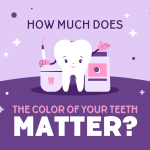

Low blood sugar has dangerous and deadly consequences if you don’t know the signs. Our body needs sugar to fuel its normal functions—heck, it even needs sugar to keep you asleep—and needs constant replenishing. If you don’t eat as many carbohydrates as you should, your body starts undergoing the symptoms down below:
1. Extreme Hunger Pangs
Crazily intense hunger pangs are often the first telltale signs of low blood sugar. Your brain and stomach are smart cookies that know when you need more sugar in the system!
The trick to managing your blood sugar levels is not eating too little or too much sugar. If you eat too little, your body will encourage you to eat more. If you eat too much, you develop insulin resistance and will have a harder time absorbing sugar. Follow the Goldilocks effect and eat 40 to 65 g of carbohydrates per meal.
2. Anxiety Attacks
Your liver stores sugar as glycogen and saves it for a later time when your body needs it. This includes when your blood sugar levels are low. Here, the brain sends cortisol and adrenaline to the liver, triggering it to release more sugar into the bloodstream. This makes you experience symptoms of anxiety.
Take note that your body can only store around one pound of glycogen at a time. It can only last you so long, so don’t deplete your storage without refilling them.
3. Sleepless Nights
Sleepless nights due to hypoglycemia are referred to as nocturnal hypoglycemia. This is when the body starts having night sweats, nightmares, grogginess upon waking, and jerking sensations due to the lack of sugar. Or, it can be something as simple as not being able to sleep because your stomach is aching for sugar.
If you encounter this problem a lot, you should eat a small snack before bed—nothing too big or you might get indigestion.
4. Shakiness
A lack of sugar makes our bodies do some crazy stuff. One of them is activating the autonomic nervous system responsible for involuntary bodily movements like your heart beating, lungs breathing, and eyes blinking. This system also activates during times of stress, making us shiver when we’re cold or shake when we’re scared.
This is why many hypoglycemics start involuntarily shaking when low on sugar. It’s a sign something is wrong.
5. Mood Swings and Emotional Outbursts
Ever experienced being hangry—being simultaneously hungry and angry? Well, that’s a real thing! Lack of food can make us very irritable, prone to emotional outbursts, or sometimes even depressed and forlorn.
So, the next time you snap at someone or cry over something mundane, don’t be afraid to reach for a chocolate bar. Your body probably needs the sugar.
6. Sweatiness
That icky feelings of sweatiness and clamminess are signs most diabetics experience if their blood is low on sugar. This happens because our adrenaline spikes when our body is low on sugar, just like how you’d start sweating when you’re scared or nervous. Your skin should be feeling drier once you have sugar in your system.
7. Lightheadedness
When your body lacks sugar, your brain is going to compensate by saving as much energy as it can. This makes you feel very lightheaded. It also makes it difficult to do physical tasks like exercise—that’s why many fitness experts highly recommend you eat a good, square meal before every intense workout.
As long as you get glucose in your system as soon as possible, lightheadedness does not last very long. Start with something small like crackers first as you don’t want to overwhelm your empty stomach with a big meal.
8. Difficulties with Concentration
Like how a car can’t run as fast without fuel, your brain can’t think as efficiently without food. It’s always best to study or do problem-solving tasks when you’ve got some snacks around you. Otherwise, you’re just making things harder for yourself!
Luckily, the brain fogs you experience due to low blood sugar are temporary signs and have little to no long-term effects—nothing that the right food won’t cure.
9. Vision Problems
When your blood sugar is low, it can be hard to think, see straight, or recognize the signs. In a study about low blood sugar, study participants reported experiencing blurred vision (73%), dimness of vision (45%), or dark spots around the vision (37%). Some also experience tunnel vision, or the inability to focus on peripherals.
If bad vision is out of the norm for you, maybe you just need a little bit of sugar.
10. Speech Problems
As an energy-intensive organ, your brain needs a lot of glucose to maintain proper function for itself and the rest of your body. So, if you’re severely lacking in the glucose department, common brain functions including speech (e.g., articulating words, finding the right vocabulary, using the right language) will start to become impaired. It’s akin to being super drunk without having a drop of alcohol in your system!
You mustn’t let blood sugar levels drop dangerously low to this point, otherwise, it’ll be difficult to explain your issues to someone who can help.



